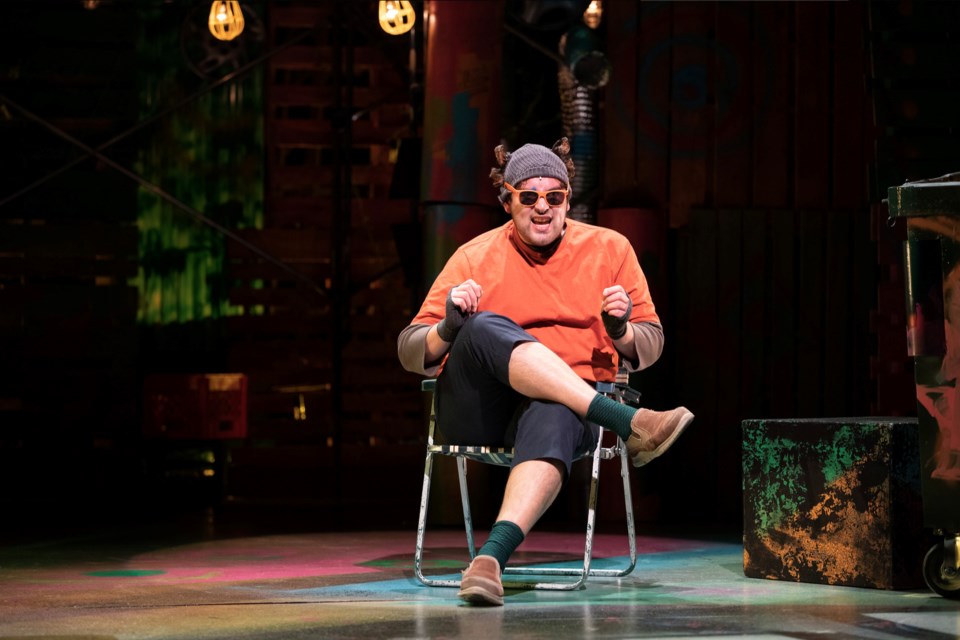Colleges and universities across North America have closed campuses and begun to offer courses online, a necessary precaution against the COVID-19 respiratory virus.
For one local university student in the United States, a sudden campus shutdown, an unexpected change of flight itinerary and riding out an earthquake all took place within the last week.
Sage Jepson, a second year Bachelor of Fine Arts student in musical theatre at Berklee University’s Boston Conservatory, was one of many who received a blunt email from administration on March 11.
The email simply stated it was shutting down all in-person classes and putting courses online where instructors would teach from their home. In addition, all students had exactly one week to vacate their dorms with all possessions.
“I initially freaked out and called my mum. After realizing I had seven days to pack up my things, move and book an airline ticket, I decided to respond in a calm manner,” said Jepson.
Due to a flight cancellation, long waits between flights and an earthquake in Minneapolis, the former St. Albert Children’s Theatre actor arrived at Edmonton International Airport on Thursday, March 19, one day after he was slated to return.
Although tired from the stress of living in airports for 24 hours, he celebrated the home landing with a good old Tim Hortons large iced mocha with oatmeal.
Boston pandemic
Boston’s first confirmed case was reported on Feb. 1 when a student returning from Wuhan, China, experienced symptoms and was tested. The result were positive.
However, most of the early cases of the 2020 coronavirus pandemic are traced to an international conference Biogen (biotech industry) held in Boston in late February.
A few days after the conference, around March 3, several executives fell ill and sought testing at Massachusetts General Hospital or their doctors, but were turned away.
At the time, federal testing guidelines stated that only those with symptoms, plus travel to affected areas were eligible for testing. Due to a lack of early due diligence, there are now more than 80 confirmed cases traced back to the conference.
“Panic in Boston started happening mid-February after there were reports of a new virus in China and people weren’t sure what was happening,” Jepson said.
“The university sent out an email saying it was closely monitoring the situation and putting protocols in place. But it was a little vague.”
Once the order to vacate arrived and the initial confusion died down, he stripped the bedsheets and packed a few bags with essentials such as clothes, computer and school materials. The rest of his things were packed in five boxes and stashed at friends’ apartments in Boston.
“A lot of my friends opened their doors for me and I really appreciate that.”
Booked to fly out of Boston Logan Airport on a Delta airplane on Wednesday, March 18, Jepson arrived expecting a three-hour lineup. Instead it only took a half hour to pass security.
“And when I got on the plane, there were only about 30 people in seats. Usually there would be about 100.”
While Albertans are viewing feeds on television and social media of travelers standing in sardine-packed airport lineups, this was a surprising comment.
“People are stressed out. It’s freaky to know you can walk out the door and catch a virus. And that’s why people are scared to get on a plane. There’s information that’s going around and it’s passed on word-of-mouth. It gets jumbled up and people don’t know what to believe.”
While his Boston to Minneapolis flight was on target, the Minneapolis to Edmonton flight was delayed.
“When I got to Minneapolis, our plane was cancelled. There was a 5.7 earthquake and there were a whole bunch of planes that couldn’t get off the ground. Fortunately, they got us a hotel.”
After deplaning in Edmonton, border security wearing masks and gloves asked a few questions: Are you experiencing symptoms? Where you travelling outside the United States? Where do you come from? Why were you in Boston?
He was told to self-isolate for 14 days and provided with information. In addition, Alberta Health Service nurses provided pamphlets on how to survive self-quarantine.
For Jepson, who lives and breathes theatre and has honed his skills from the age of five, staying away from the stage that thrives on a group of people sharing creativity and resourcefulness is difficult at best.
“I almost feel a grief at the loss of school. I’m studying at an institution doing what I’m passionate about, and not being in Boston is the hardest thing. I’m not actively training for my dream. How am I going to get the most out of online learning?”
The pandemic has caused financial hardship for numerous Berklee students. Jepson is one of the lucky ones.
He is a Presidential Scholarship recipient. The prestigious scholarship covers four years of tuition, on-campus housing and a computer for students with the highest talent, merit and financial need. Tuition alone is $23,000 per semester.
“I can’t believe I’m this lucky,” said the young actor, recognizing financial hardships of others.
Now ensconced at his mother’s house living comfortably in the home’s lower level, he can gear up for online classes and special projects that will be directed from Boston.
One thing that’s come out of the pandemic is that Jepson has stepped outside his environment and added a fresh perspective to life.
“Every day, remember how grateful we are to be on this planet. Any day it could be stripped away. Live your life like it’s the last, so hug your parents today."




